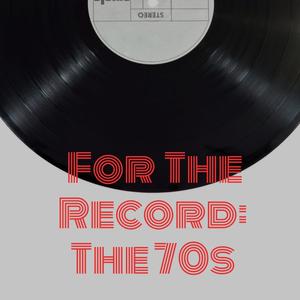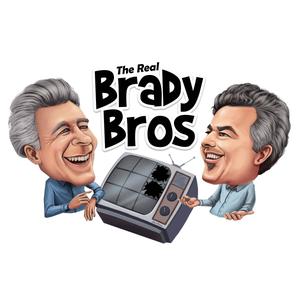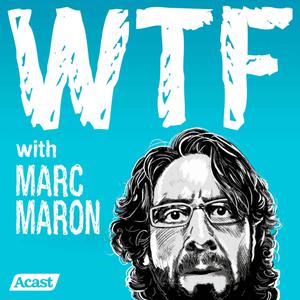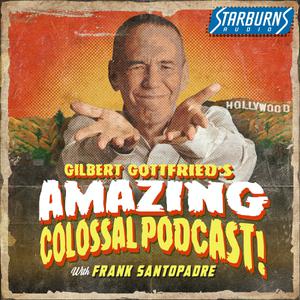
For the Record: The 70s
Amy Lively
- 37 minutes 45 secondsEp. 52 - 70s Christmas Music
It isn't easy to write an original Christmas song that stands the test of the time, but artists of the 70s gave us several, such as "Feliz Navidad" by Jose Feliciano and "Step into Christmas" by Elton John. These songs, combined with some iconic covers, added a wide variety of Christmas music created in the 70s to the holiday song canon.
27 November 2024, 3:25 am - 45 minutes 29 secondsEp. 51 - The Softer Side of 70s Rock
Rock critics may have hated it but millions of music fans loved so-called "soft rock." This episode examines possible theories for this genre's popularity and makes the case that this "safer" version of rock music may have actually been an expansion of it that is still part of popular music. *Fans of this podcast should also check out "For the Record: The 80s!*
13 October 2024, 8:51 pm - 51 secondsDo You Want Your 80s?
The latest episode of For the Record: The 80s has dropped! Find it in your favorite podcast app, subscribe, and share!
26 August 2024, 1:02 am - 38 minutes 26 secondsEp. 3 - Nostalgia, Race, and Rebels in 70s Southern Rock (Encore)
Southern rock from bands such as the Allman Brothers and Lynyrd Skynyrd was not just loved by Americans from the South. Southern rock has broad appeal. For many white southerners, though, this form of rock tapped into a desire for nostalgia, rebellion, and a reclaiming of the South as a distinct region. This episode discusses the question of how we should think about that music now, as well as the very thorny question of what the Confederate flag has to do with any of it.
16 July 2024, 7:46 pm - 32 minutes 47 secondsEp. 2: Countryish Music of the 1970s (Encore)
How and why did artists such as John Denver and Olivia Newton-John upset the country music establishment in the 1970s? Country radio has created the country music sound it has wanted since Elvis and rock and roll began to lure away its customers. This was not pleasing to country music purists in the 1970s. This episode discusses why more people began to listen to "countryish" music in the 70s and why it became difficult to distinguish country from other pop music. [This episode has been slightly updated since its original publication in November 2018.]
17 June 2024, 12:19 am - 46 minutes 36 secondsEp. 1: Disco Doesn't Suck (Encore)
Disco and the 70s had a love-hate relationship. This episode examines who hated disco and why, as well as why it thrived in the underground until radio and the movie, "Saturday Night Fever," helped bring disco into the mainstream.
29 May 2024, 12:07 am - 48 minutes 45 secondsEp. 50 - The Travolta Trilogy
In just over a two-year span as the 1970s marched on toward the 1980s, John Travolta starred in three cultural touchstone movies: "Saturday Night Fever" (released on December 12, 1977), "Grease" (released on June 16, 1978), and "Urban Cowboy" (released on June 6, 1980). This episode examines the cultural significance of those films, the music in them, and how much Travolta himself had to do with the popularity of the movies.
13 May 2024, 3:08 am - 43 minutes 41 secondsEp. 49 - Austin City Limits and the 70s Country Music Revolution
In 1974, a local Austin PBS station aired the first episode of "Austin City Limits" and, with that, took the first step to showing the entire country how Austin, Texas celebrated and encouraged experimentation with country music. One of the founders of the show carried a business card that described the show's music as "free form country folk rock science fiction gospel gum existential bluegrass guacamole opera music." As the show celebrates it's 50th anniversary in 2024, it continues to be an example of how a commitment to music rather than glitz and glamour can find a loyal television audience.
30 March 2024, 10:31 pm - 43 minutes 53 secondsEp. 48 - The "Worst" of the 70s? The Music of 1974
The year 1974 shoulder much of the blame for the so-called worst music of not only the 1970s, but the worst of all time. Is this true? While we know that 1974 had much good to offer, is it true that it also had the worst of the worst? If so, does it matter. This episode takes a closer look at some songs considered the all-time worst, including "Seasons in the Sun" by Terry Jacks, "Cat's in the Cradle," by Harry Chapin, and "Billy, Don't Be a Hero" by Bo Donaldson and the Heywoods.
1 March 2024, 3:06 am - 52 minutes 47 secondsEp. 47 - Dick Clark's Entertainment Empire
Did you watch television in the 70s? If so, it was highly likely that you watched something that was created or produced by Dick Clark. The centerpiece of his entertainment empire was "American Bandstand," but there was more than that, including "New Year's Rockin' Eve" and "The 25,000 Pyramid." Clark was concerned about his legacy and this episode examines just what that legacy was and how it was part of 70s pop culture.
19 November 2023, 11:30 pm - 48 minutes 44 secondsEp. 46 - The Chaos and Music of the Ozark Music Festival of 1974
What could possibly happen to make a music festival be tagged as "3 Days of Sodom and Gomorrah?" How about toilets on fire? Drugs being sold as openly as sex? Young rock fans strolling naked through the streets of Sedalia, Missouri as they ditched their clothing to cope with the summer heat? Yes, all this and more descended on this small Missouri town in a festival that was marketed, in part, to town officials as a method of showcasing bluegrass music. There was a little bluegrass but there was a whole lot more of rock. As bad as the behavior of many of the fans was, that was how great the music was. Twenty-seven bands in all, including The Nitty Gritty Dirt Band, The Eagles, The Ozark Mountain Daredevils, REO Speedwagon, and more performed for hot, thirsty, and high rock fans in an epic and unforgettable weekend of rock (mostly) music.
20 September 2023, 3:42 am - More Episodes? Get the App
Your feedback is valuable to us. Should you encounter any bugs, glitches, lack of functionality or other problems, please email us on [email protected] or join Moon.FM Telegram Group where you can talk directly to the dev team who are happy to answer any queries.
 Rolling Stone Music Now
Rolling Stone Music Now
 Hit Parade | Music History and Music Trivia
Hit Parade | Music History and Music Trivia
 Behind The Song
Behind The Song
 The Real Brady Bros
The Real Brady Bros
 WTF with Marc Maron Podcast
WTF with Marc Maron Podcast
 Gilbert Gottfried's Amazing Colossal Podcast
Gilbert Gottfried's Amazing Colossal Podcast